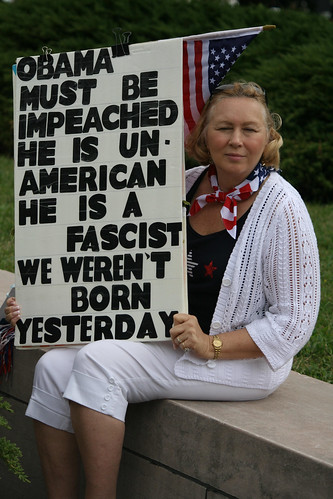 I ran a social media for social change workshop on the weekend for people involved in the AshokaU Changemaker Campus program. During it I was asked a question which often concerns me but for which I have no good answer: how do we reach diverse audiences with our message when so many people's media consumption is so narrow?
I ran a social media for social change workshop on the weekend for people involved in the AshokaU Changemaker Campus program. During it I was asked a question which often concerns me but for which I have no good answer: how do we reach diverse audiences with our message when so many people's media consumption is so narrow?
The future of our democracy may rest on finding an answer to this question.
While I'm obviously a believer in the democratizing power of the internet, and I have worked for many years to help realize this power, I am also aware that the ongoing fragmentation of audiences into discrete niches poses challenges to our governance.
It is now possible to curate for yourself an entirely ideologically coherent media diet. You could listen to only right-wing talk radio, watch Fox on TV and read the conservative blogosphere. You can do the equivalent on the Left (although it will be harder to find left-wing talk radio after the recent demise of Air America).
The result of this fragmentation and curation is that Americans on the left and right scarcely seem to live in the same country. The teaparties are a prime example of this, but the numbers actively involved are relatively modest, despite all the attention they are given. Less dramatic but more shocking were the results of a recent survey, commissioned by liberal site DailyKos and conducted by non-partisan polling firm Research 2000, of registered Republicans.
The 2003 Republicans sampled hold some pretty odd opinions. 39% believe Obama should be impeached (for what the poll does not ask). 63% think Obama is a socialist. Only 36% are sure he was born in the United States. 53% think Sarah Palin is more qualified to be President than Obama and 31% think Obama is a racist who hates white people. 28% believe the 2008 election was stolen by ACORN. Truly Republicans are from Mars and Democrats are from Venus.
You can see this dichotomy play out on issues after issue, and not simply in terms of different opinions about what should be done but different opinions about what has actually happened.
In a recent poll only 12% of the popular felt they had got a tax cut, and fair enough, the tax cut was small, but an amazing twice that many, 24% of respondents, thought their taxes had increased under Obama. As 95% of the population has received a tax cut all most of these people would have needed to do to prove their conjecture wrong is compare their latest pay slip to one from 2008.
This confusion isn't rare. Significant chunks of the population think Obama is trying to end private health insurance (when his plan is, in fact, center-right from a policy perspective with no public option), has reduced military spending (it has gone up) is anti-nuclear (he's in favour) is about to take away the guns (he has said repeatedly that he's not proposing any new gun control legislation). And on and on including, of course, whether Climate Change is happening or not.
One of the interesting aspects of the DailyKos poll was how uniform the responses were across regions and age groups. Here's the response to the "is Obama a socialist?" question:
Remember that this is registered Republicans, so an unusually political group, more likely than most to consume political media. And, I think, for a republican the choice of political media is clear - Fox news and the rest of the right-wing media constellation. It is this shared media diet which produces such a uniformity of belief, and it is the hyper-partisan nature of this media which produces disagreements about what constitutes fundamental reality, such as whether the President of the United States was born in the country.
This is where things get dangerous for democracy. If a society cannot agree on what the issues are, cannot reconcile on a jointly-held view of what's actually happening and who the actors are, then it will be impossible to come together to face the challenges and opportunities which confront them. When a society cannot agree on what these challenges and opportunities are they have no chance of making the necessary sacrifices to change, adapt and move forward.
Instead we are trapped in a battle of wills, of who can more persuasively describe a version of events, with the media satisfied to provide a platform for "he said, she said" debates.
For those of us who care about the future of democracy it is vital that we seek to build tools that bring diverse perspectives together, rather than the easier task of hosting narrow and self-selected conversations. We must move beyond the converted if our democracy is to stay vibrant, creative and capable of making future-focused decisions based on the best intelligence.
The question of how a society talks to itself in the 21st Century remains to be answered but is crying out for new thinking and approaches. The fragmenting of the media landscape is permanent, but without a capacity to talk together outside of our ideological, demographic and class niches our politics will fragment alongside it and our capacity for effective governance may also disappear.
